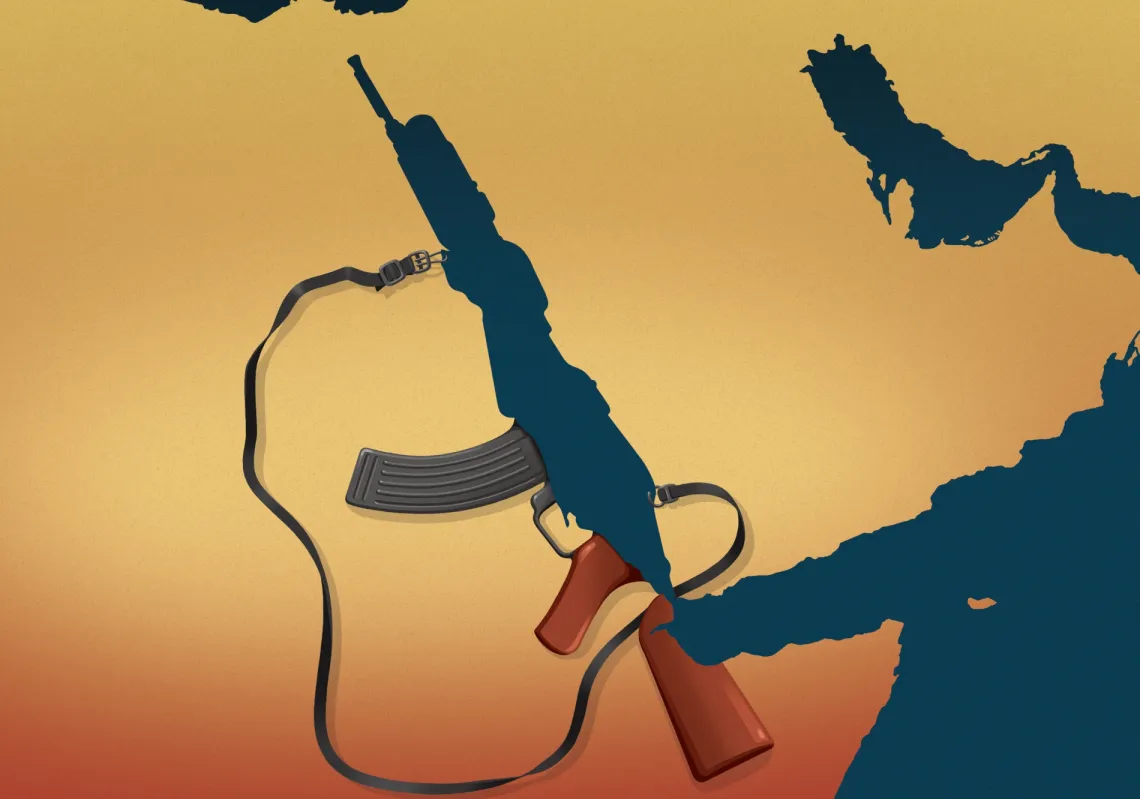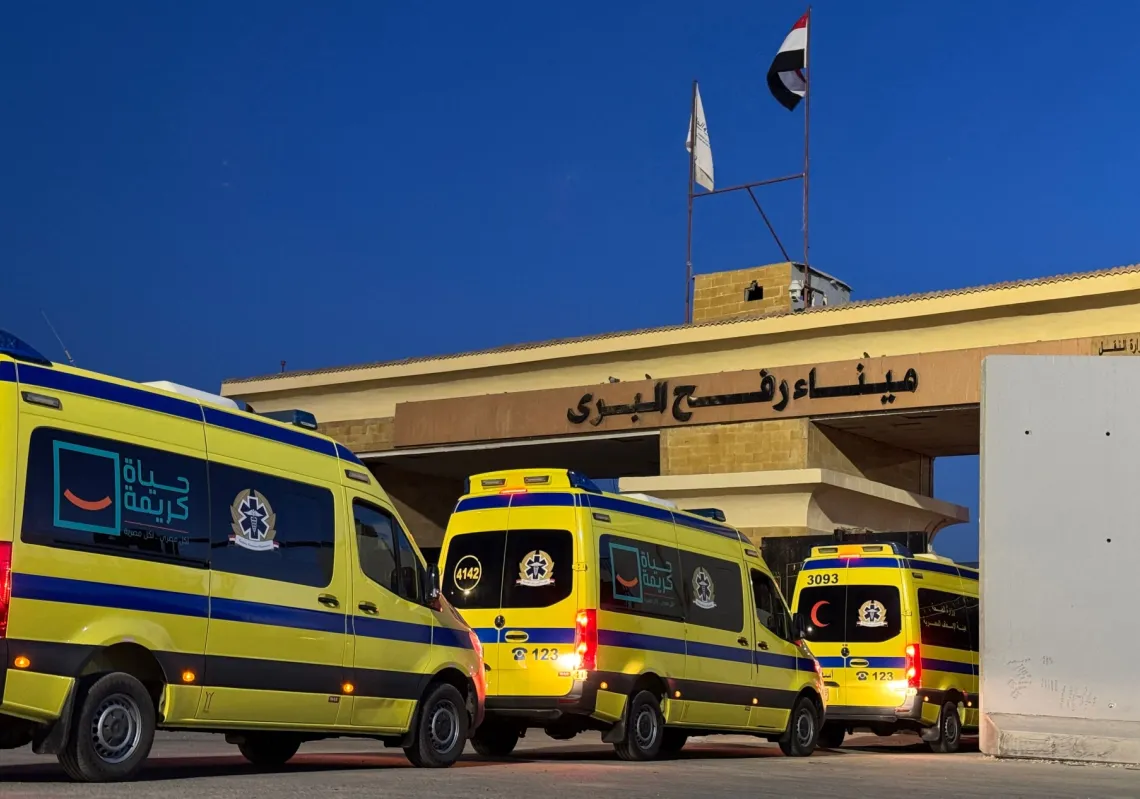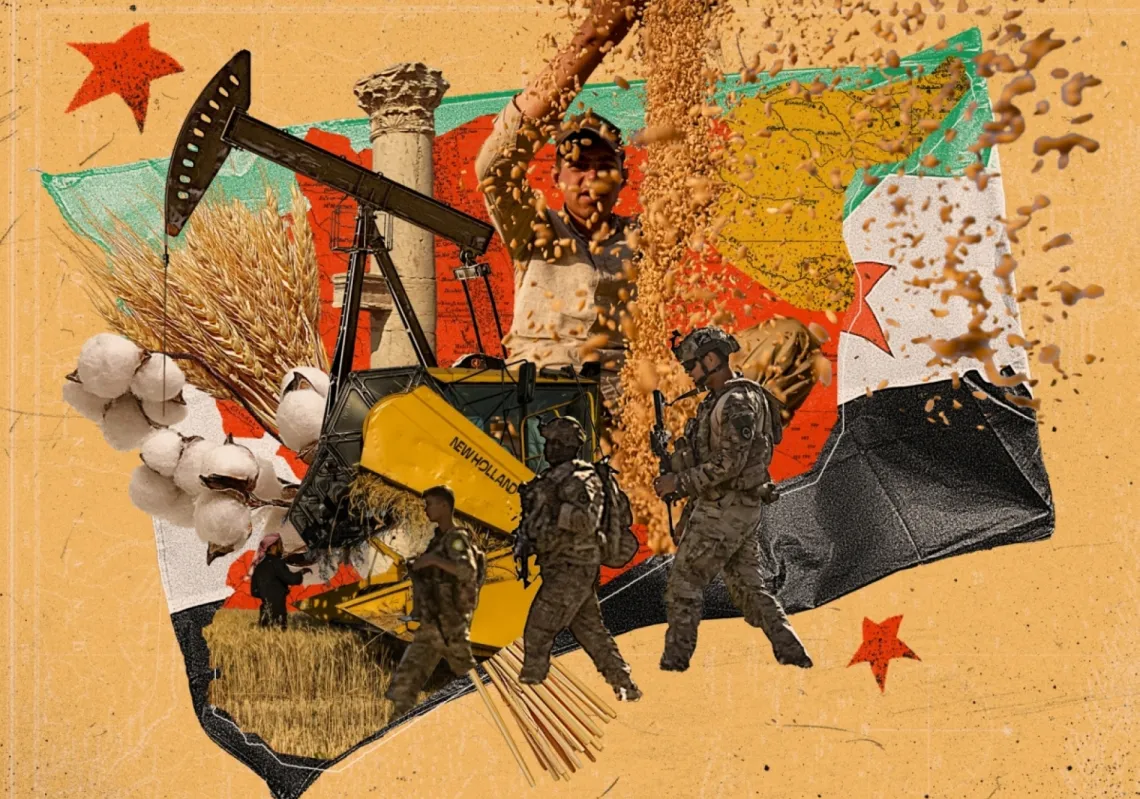Washington, DC: The concept of humanitarian military intervention is one of NATO’s founding tenets. The policy compass has often pointed to human tragedy not just within NATO's traditional European boundaries but even far beyond.
There’s a clear example in the Middle East. On 31 March 2011, NATO launched Operation Unified Protector against the forces loyal to Libyan leader Muammar Gaddafi, demonstrating to the entire world that it’s an active global security actor.
The alliance even intervened militarily in Libya to protect civilians and rebel-held areas against the forces and tribes loyal to the deposed leader without the participation of the United States. In exactly five months, NATO’s air power helped the rebels control the capital, Tripoli.
In contrast to its response to Libya, NATO has not intervened in Gaza to help bring the Israeli war on Gaza to an end or by establishing a peacekeeping task force in the endless search by multiple parties of how to stabilise the Gaza Strip in a post-war scenario free of Hamas.
The International Criminal Court has accused the Israeli prime minister and his defence minister, as well as senior Hamas leaders, of war crimes, placing Benjamin Netanyahu and Yahya Sinwar among world leaders infamous for heinous acts against humanity. The chief prosecutor, Karim Khan, requested arrest warrants against them in May.
Read more: Netanyahu vs Sinwar: Egocentrism personified in Gaza war
The prosecutor focused on the raid carried out by Hamas on 7 October when militants stormed southern Israel, which led to the killing of around 1,200 people and taking some 250 hostages, and on Israel’s military ferocious response in Gaza.
I raised the question of non-intervention in Gaza in an exclusive interview with NATO Assistant Secretary General for Political Affairs and Security Policy Ambassador Boris Ruge on the sidelines of the NATO summit in Washington, DC. He previously served as Vice Chairman of the Munich Security Conference, German Ambassador to the Kingdom of Saudi Arabia, Director of Middle East/North Africa at the German Foreign Office in Berlin, and Deputy Chief of Mission of the German Embassy in Washington, DC.

Human tragedies have been a key driver of NATO’s policy across the decades in several areas like Kosovo. And the war in Gaza has been raging since October 2023. Tens of thousands of people have been killed, hundreds of thousands have been displaced, and millions have been enduring unspeakably harsh conditions, including the deprivation of food, water, and electricity.
Ambassador Ruge described the Gaza conflict as a geopolitical, military-strategic, diplomatic, and legal dilemma as complicated as the war in Syria.
Below is the full interview.
Could NATO intervene in Gaza as it did in Libya on the basis of military humanitarian intervention?
It’s important to remember that NATO's military intervention in Libya had an international legal basis in the form of a UN Security Council Resolution, which was preceded by basic appeals and actual decisions by the Gulf Cooperation Council and the Arab League. So NATO would never have intervened unless there was such a basis. The same was true in Afghanistan, where there was a UN Security Council resolution. So that's one angle.
The other angle is that since 2014, when Russia first invaded Ukraine, and even more since 2022 with its full-scale invasion of Ukraine, we have really focused on deterrence and collective defence in Europe. When Libya happened, that was not really the case. Back in 2011, the threat from Russia was not the same as it is today.
So after a period of perhaps 20-plus years, where collective defence in Europe was not so much an issue, we're now back in a situation where Article Five—potentially defending NATO territory against Russia—is at the top of the list.
This means there is less bandwidth to engage in what we used to call "out-of-area operations." Now, NATO is present with one mission in Iraq that trains military personnel and interior ministry personnel.
Therefore, NATO humanitarian intervention anywhere in the Middle East is very unlikely. When it comes to Israel-Palestine, I think we also have to be clear that among the 32 NATO allies, there is no single unified position on the Israeli-Palestinian conflict. The EU has that to some extent, but NATO has more members and a broader spectrum of opinions.
But NATO intervened militarily before without a UN Security Council mandate or legal basis in Kosovo.
That was a very extraordinary situation. And, of course, we were heavily criticised first and foremost by Russia and China, but also by others, for intervening without an international legal basis.
The argument that we made was that we were faced with a situation where Serbia was attacking the civilian population. They were forcing hundreds of thousands of Kosovo Albanians out of their homes, creating a humanitarian crisis of huge proportions and destabilising countries in the neighbourhood.
We ended up intervening based on this humanitarian and political emergency, although there was no UN Security Council resolution. The UN Security Council resolution came after the intervention when it adopted resolution 1244, which was the basis for what became NATO's Kosovo force. So, while the use of force in Kosovo without a UN Security Council Resolution did happen, it was very much the exception.
There was a broad view of a problem of massive proportions— both in humanitarian terms and in political terms—because it would destabilise the region. It was in Europe, very close to an ally’s territory, right next to Greece. And therefore, there was a political will to do something about it.
But what’s going on in Gaza is also a human tragedy with massive proportions. I attended the press conference of Secretary General Jens Stoltenberg earlier in the day, and he said that global security—not just Europe’s security—is a major policy for NATO.
NATO even announced the establishment of its first-ever liaison office in the region, in Jordan, which clearly demonstrates, as he says, NATO’s commitment to cooperation and engagement with the Middle East. So, do you think that the humanitarian tragedy in Gaza isn’t a priority?
Firstly, I think it is pretty much seen by allies as a humanitarian tragedy. The Secretary-General has repeatedly spoken about the need to uphold international humanitarian law. Some allies question whether it is a human tragedy or a clear-cut violation of international humanitarian law. International humanitarian law must be upheld by all parties to the conflict.

However, the Gaza war has political and strategic repercussions as well. In previous jobs, I've worked a lot with Israelis, as well as the Palestinian Authority, the PLO, people in the security services of the Palestinian Authority, and their counterparts on the Israeli side, and I really feel for the people there.
I had one case of a Palestinian reaching out to me, a Palestinian-American, whose parents were stuck in Gaza, which was around Christmas time. I tried to help get them out, but they eventually got out. But the father, who was an old man dependent on medication, got stuck in northern Gaza and was unable to get out. So, it was just one example for me. There are so many tragedies that we see in Gaza, like children dying, and that’s not acceptable.
Read more: Feeling lost in Jerusalem? It’s called Palestinian self-demolitions
But again, I think for us to do something, first of all, we would have to agree on sort of how we see this Palestinian-Israeli political issue, and I think that there's simply no agreement in NATO.
Some allies would identify entirely with the Palestinian cause and the situation of Palestinians; others would take much more of a sort of Israeli position that was close to the Government of Israel. So, we don't really have a starting point.
In Afghanistan, for example, we started out not as a humanitarian operation but as a counter-terrorism operation to go after Al Qaeda and the Taliban, who were shielding Al Qaeda; that was the start of it. Over time, it turned into a huge nation-building and humanitarian exercise with the notion that we would also change Afghanistan and help women and girls there.
But we were not able to deliver, which was not particularly surprising to me because I'd worked in Kosovo—a tiny place where we had lots of troops and a huge UN mission alongside NATO. You came up against the limitations of bringing change to a society as an outsider.














